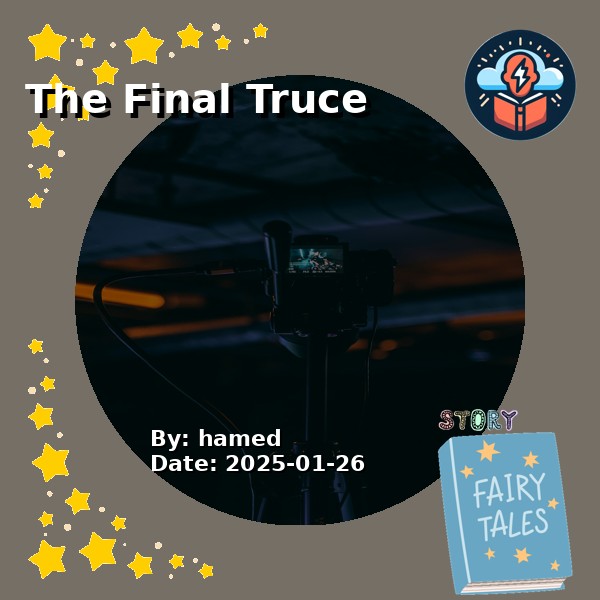The ceasefire had been declared at dawn, the air still heavy with the residue of smoke and grief. In the narrow streets of Gaza, Yasmin clutched her son Ibrahim’s hand, urging him toward the clinic. The boy’s fever had worsened overnight, and the ceasefire offered their only chance to reach help.
Across the border, David packed supplies into his car. His wife, Leah, had begged him not to go, but he couldn’t ignore the call from a humanitarian aid group. “We’re delivering food to a neutral zone,” he told her. “It’s safe now.” But even as he said it, his voice wavered.
The meeting point was a bombed-out schoolyard, its walls scarred with bullet holes and graffiti in two languages. Yasmin arrived first, her heart pounding as she scanned the desolate space. She didn’t expect to see another family—a man unloading crates from a truck while a young girl peeked out from the passenger seat.
David stiffened when he noticed Yasmin and Ibrahim. The woman’s hijab and the boy’s pale face told him they weren’t from his side of the conflict. He hesitated, then forced himself to focus on the crates. This was no time for fear, he reminded himself.
“Mama,” Ibrahim whispered, tugging at Yasmin’s sleeve. “I’m thirsty.”
Yasmin looked around, her parched throat mirroring her son’s need. But there was nothing—no water, no aid workers, only the stranger and his truck. She hesitated before stepping closer.
“Excuse me,” she called out in broken Hebrew, her voice trembling. “Do you…have water?”
David turned toward her, his instincts screaming to stay distant. But then he saw the boy’s face—flushed, sick, too young to understand the hatred passed down through generations. He nodded slowly, reaching for a bottle.
“Here,” he said, handing it over.
Yasmin muttered a quiet “Shukran,” glancing at his daughter, who was now staring at Ibrahim with wide, curious eyes.
“What’s your name?” the girl asked, switching to Arabic with surprising fluency.
“Ibrahim,” the boy replied shyly.
David and Yasmin exchanged a wary glance, their children breaking a silence that had been built over decades.
“Are you sick?” the girl continued, pointing at Ibrahim’s flushed cheeks.
“Yes,” Yasmin answered for him. “We’re trying to get to the clinic.”
David hesitated, then spoke before he could stop himself. “The clinic’s hours away on foot. I can give you a ride.”
Yasmin’s eyes narrowed, suspicion flickering. “Why would you help us?”
David shrugged, looking at his daughter. “Because we have to start somewhere.”
The ride to the clinic was quiet but tense, the weight of history sitting heavy in the small truck. The children, however, whispered softly in the back seat, sharing stories of school, pets, and dreams that seemed oblivious to the borders drawn by their parents.
When they reached the clinic, Yasmin turned to David. “Thank you,” she said, her voice steadier this time.
David nodded, watching as she led Ibrahim inside. As he turned to leave, his daughter spoke up. “Will we see them again?”
He didn’t know how to answer. The ceasefire was fragile, like glass stretched too thin. But for a moment, he allowed himself to hope.
“Maybe,” he said. “Maybe someday.”
And as they drove away, the sound of children’s laughter lingered in the air—a small, fleeting truce of its own.
